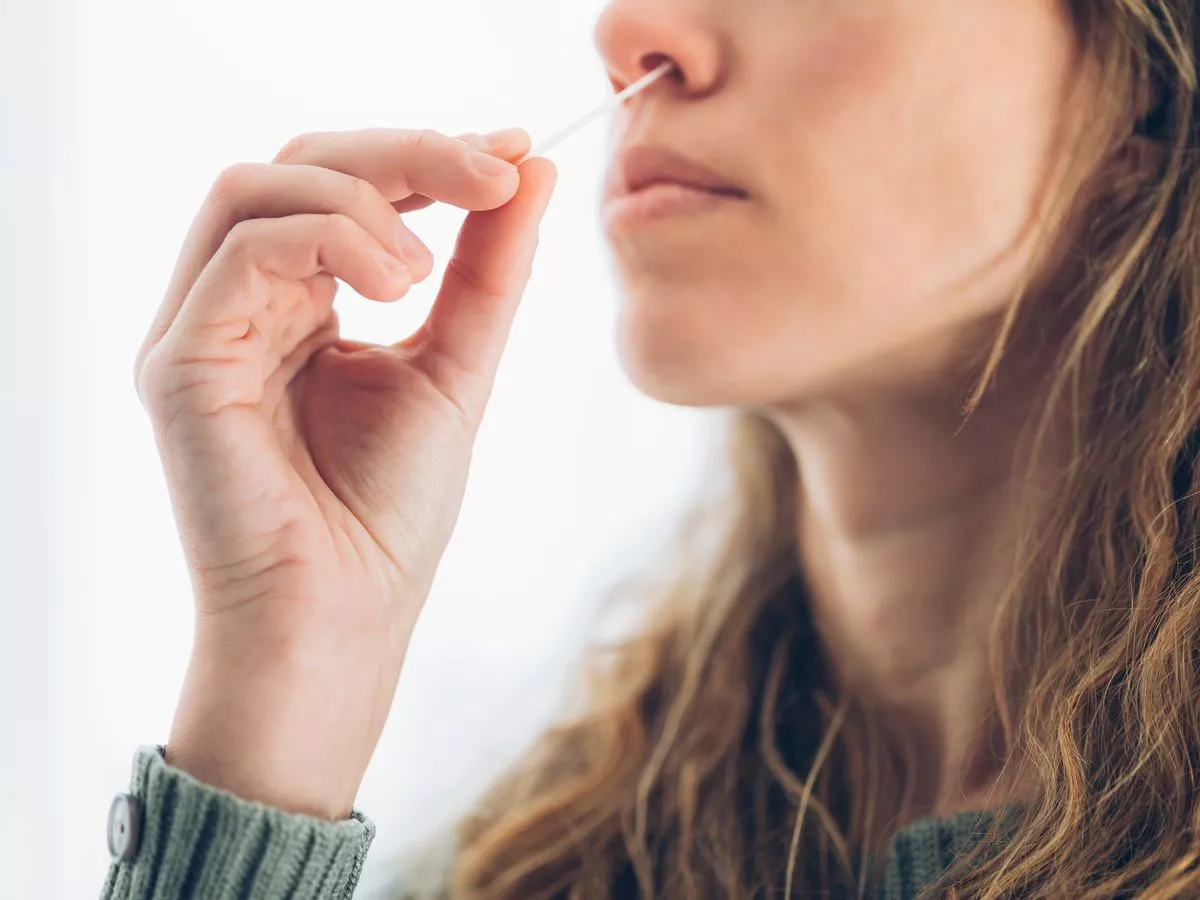By Ben Hurst,Kate Lally
Copyright dailyrecord

Women suffering from long Covid have been found to experience longer, heavier periods compared to those who were never infected with the virus, according to new research. The study also discovered that the severity of long Covid symptoms varies at different points in the menstrual cycle and intensifies around the time of each period. The researchers believe these findings highlight the intricate relationship between menstrual health and long Covid, a condition which experts estimate affects about 30% more women than men. They hope this could pave the way for the development of specific treatments for women with long Covid who are experiencing “menstrual disturbance”. This research was unveiled today, coinciding with the detection of a new strain of the virus in the UK, raising concerns about its rapid spread this winter. The strain, known as Stratus, has two variants – XFG and XFG.3 – which were first identified back in January of this year. By June, the World Health Organisation had declared XFG to be ‘under monitoring’ due to its ‘increasing proportions globally’. And in recent sequenced samples, XFG was the most prevalent lineage. The research into long Covid, published last month, saw scientists from the universities of Edinburgh, Oxford and Montpellier analysing data from an online UK survey of more than 10,000 women between March and May 2021. The study involved over 1,000 women with long Covid, 1,700 who had recovered from acute Covid infection and 9,000 never-infected individuals. It was found that women with long Covid reported heavier, longer periods and more bleeding between periods than those who had not been infected with the virus. Those who had recovered from a short-term Covid illness experienced less disruption to their periods. Dr Jackie Maybin, reader and consultant gynaecologist at the University of Edinburgh’s centre for reproductive health and NHS Lothian, said: “Heavier, longer periods can result in iron deficiency. Given the symptoms that those with long Covid are already enduring, it is essential that we rapidly identify menstrual disturbance and have effective treatments to prevent iron deficiency and its associated fatigue, weakness and shortness of breath. “This study is the first step towards specific treatments for menstrual disturbance in women with long Covid and may also lead to new treatments for long Covid symptoms that are tailored for women.” The research team analysed the impact of different stages of the menstrual cycle on long Covid symptoms, using an app to track daily symptoms in 54 women for three months. They discovered that long Covid symptoms, such as dizziness, breathing issues and brain fog, were most severe during or just before or after the women had their period. Women reported that their symptoms eased after the expected time of ovulation. Researchers have also analysed hormone and inflammation levels in a smaller group of women, both with and without long Covid, using blood samples and tissue from the uterus lining. They discovered higher inflammation levels in the blood of those suffering from long Covid around their menstrual cycle. This could contribute to problematic bleeding and influence the severity of symptoms during menstruation, according to scientists. The study found that levels of progesterone and oestradiol – hormones produced by the ovaries – were similar in those with and without long Covid, suggesting that long Covid does not significantly impact ovarian function. Dr Alexandra Alvergne, a senior researcher from the French National Centre for Scientific Research (CNRS), University of Montpellier, said: “It’s important to consider the potentially bi-directional relationship between disease and menstruation, where symptoms vary across the menstrual cycle and disease influences cycle parameters. “Here we show this may be the case for long Covid, where long Covid associates with abnormal uterine bleeding and symptoms flare up around menstruation.” The research, funded by Wellcome, the Royal Society of Edinburgh, Wellbeing of Women and UKRI, has been published in the journal Nature Communications.



